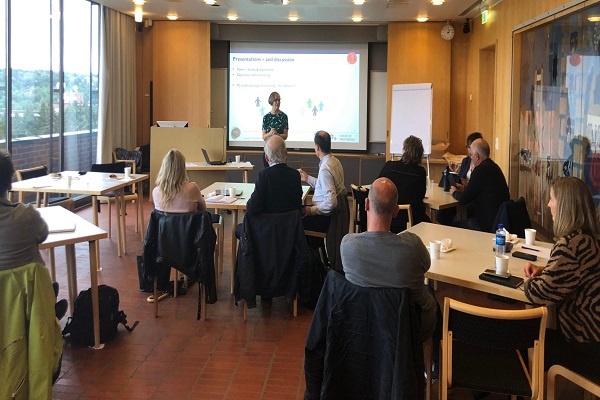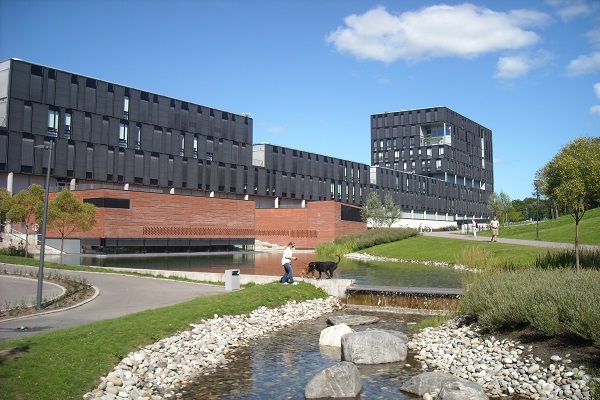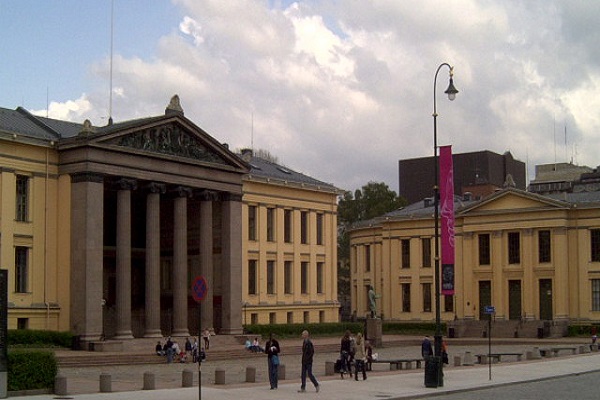University Rankings
- QS World University Rankings 67
- Times Higher Education World University Rankings 135
- Academic Ranking of World Universities 61
- QS Sustainability Ranking 54




1. Overview and History
Founded in 1811 as the Royal Frederik’s University, the University of Oslo initially offered studies in theology, law, medicine, and philosophy. It played a crucial role in the development of Norwegian national identity during the 19th century and has since evolved into a modern, comprehensive university with eight faculties and a strong focus on interdisciplinary research. The university’s name changed to the University of Oslo in
Overview and History
2. Campus and Facilities
The University of Oslo’s main campus is located in the Blindern area of Oslo, offering modern facilities including libraries, laboratories, computer labs, and student spaces. Several museums and research centers, such as the Natural History Museum and the Viking Ship Museum, are also affiliated with the university. The campus is well-connected to the city center by public transport, and student housing options are available both on and off campus.
3. Academic Programs
UiO offers a broad spectrum of academic programs across eight faculties: Theology, Law, Medicine, Humanities, Mathematics and Natural Sciences, Dentistry, Social Sciences, and Education. These faculties encompass numerous departments and institutes, providing students with a wide choice of bachelor’s, master’s, and doctoral degrees. The university is particularly strong in areas such as the humanities, life sciences, and social sciences.
4. Research and Innovation
The University of Oslo is a leading research institution in Norway and internationally recognized for its contributions to various fields, including climate research, medicine, and peace and conflict studies. UiO actively collaborates with other universities, research organizations, and industry partners to foster innovation and address global challenges. Several Nobel laureates have been affiliated with the university, highlighting its commitment to academic excellence.
5. Internationalization
UiO has a strong international presence, with students and faculty from over 100 countries. The university offers numerous international exchange programs and English-taught master’s and doctoral programs, fostering a diverse and globally-oriented learning environment. UiO actively participates in international research collaborations and networks.
6. Student Life
Oslo offers a vibrant student life with numerous student organizations, clubs, and activities catering to diverse interests. The Student Welfare Organization (SiO) provides services such as housing, canteens, and health services. Students can participate in cultural events, sports, political debates, and social gatherings, making UiO a dynamic and engaging community.
7. Admissions and Tuition
Admission to UiO is competitive and based on academic merit. International applicants must meet specific language requirements and demonstrate sufficient funding. While tuition is generally free for all students, including international students, there is a small semester fee to cover student welfare services.
8. Notable Alumni and Achievements
The University of Oslo has produced numerous influential figures across various fields. Below is a selection of notable alumni:
- Fridtjof Nansen (1861–1930): Explorer, scientist, and Nobel Peace Prize winner (1922) for his humanitarian work with refugees. He studied zoology at UiO and later became a professor there.
- Ragnar Frisch (1895–1973): Economist, co-recipient of the first Nobel Prize in Economic Sciences (1969) for his work in econometrics. He studied and taught at UiO.
- Trygve Haavelmo (1911–1999): Economist, Nobel Prize winner in Economic Sciences (1989) for his contributions to econometrics and probability theory. He studied at UiO.
- Gro Harlem Brundtland (b. 1939): Former Prime Minister of Norway (1981, 1986–1989, 1990–1996) and Director-General of the World Health Organization (1998–2003). She earned her medical degree from UiO.
- Arne Naess (1912–2009): Philosopher, founder of deep ecology, and mountaineer. He studied philosophy at UiO and became its youngest professor at age
Campus and Facilities
News & Updates
 Timeless Learning: Unveiling Oxford’s Unique Tutorial System and Academic Excellence
Timeless Learning: Unveiling Oxford’s Unique Tutorial System and Academic Excellenceby Piyush Chauhan
December 20, 2025
 Innovating Tomorrow: Discovering Cutting-Edge Research and Urban Life at UCL
Innovating Tomorrow: Discovering Cutting-Edge Research and Urban Life at UCLby Piyush Chauhan
December 20, 2025
 Beyond Textbooks: Experiencing Vibrant Campus Life at an American University
Beyond Textbooks: Experiencing Vibrant Campus Life at an American Universityby Piyush Chauhan
December 20, 2025
 Navigating Complexity: Oxford’s Insights on Global Policy and Ethical AI Challenges
Navigating Complexity: Oxford’s Insights on Global Policy and Ethical AI Challengesby Piyush Chauhan
December 19, 2025
 Engineering Tomorrow: MIT’s Breakthroughs in AI and Robotics Transforming Industries
Engineering Tomorrow: MIT’s Breakthroughs in AI and Robotics Transforming Industriesby Piyush Chauhan
December 19, 2025
Courses & Fees
| Course Name | Duration | Fees (in ₹) |
|---|---|---|
| Master of Science in Data Science | 2 years | 1,40,000 |
| Master of Arts in Scandinavian Studies | 2 years | 1,20,000 |
| Bachelor of Science in Biology | 3 years | 1,00,000 |
Frequently Asked Questions
The application deadlines vary depending on the program and the applicant's citizenship. It's recommended to check the specific program's website for the exact deadline.
While UiO itself doesn't offer many scholarships for international students at the bachelor's or master's level, there are external funding opportunities that students can explore.
Most English-taught programs require proof of English proficiency, typically through TOEFL or IELTS scores.
Oslo is a relatively expensive city, and students should budget accordingly for accommodation, food, transportation, and other living expenses.
Finding part-time jobs can be challenging but not impossible. Students are allowed to work part-time while studying, and the university's career services can offer guidance and support.
Video Highlights

University of Oslo - Your place to grow
